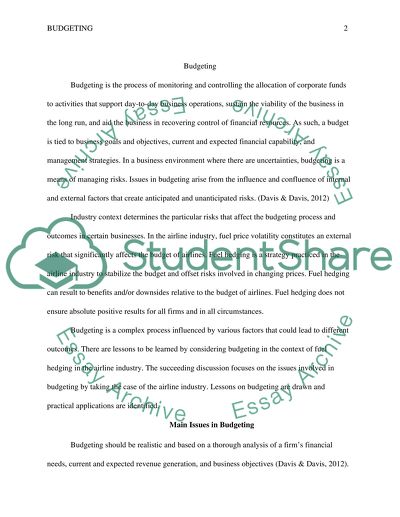Cite this document
(“Budgeting Essay Example | Topics and Well Written Essays - 1750 words”, n.d.)
Budgeting Essay Example | Topics and Well Written Essays - 1750 words. Retrieved from https://studentshare.org/finance-accounting/1465963-budgeting
Budgeting Essay Example | Topics and Well Written Essays - 1750 words. Retrieved from https://studentshare.org/finance-accounting/1465963-budgeting
(Budgeting Essay Example | Topics and Well Written Essays - 1750 Words)
Budgeting Essay Example | Topics and Well Written Essays - 1750 Words. https://studentshare.org/finance-accounting/1465963-budgeting.
Budgeting Essay Example | Topics and Well Written Essays - 1750 Words. https://studentshare.org/finance-accounting/1465963-budgeting.
“Budgeting Essay Example | Topics and Well Written Essays - 1750 Words”, n.d. https://studentshare.org/finance-accounting/1465963-budgeting.


